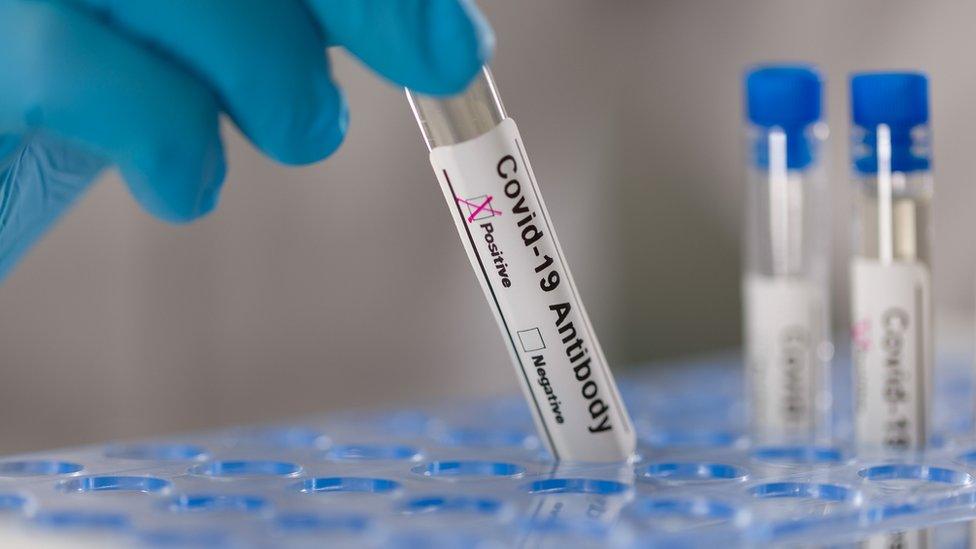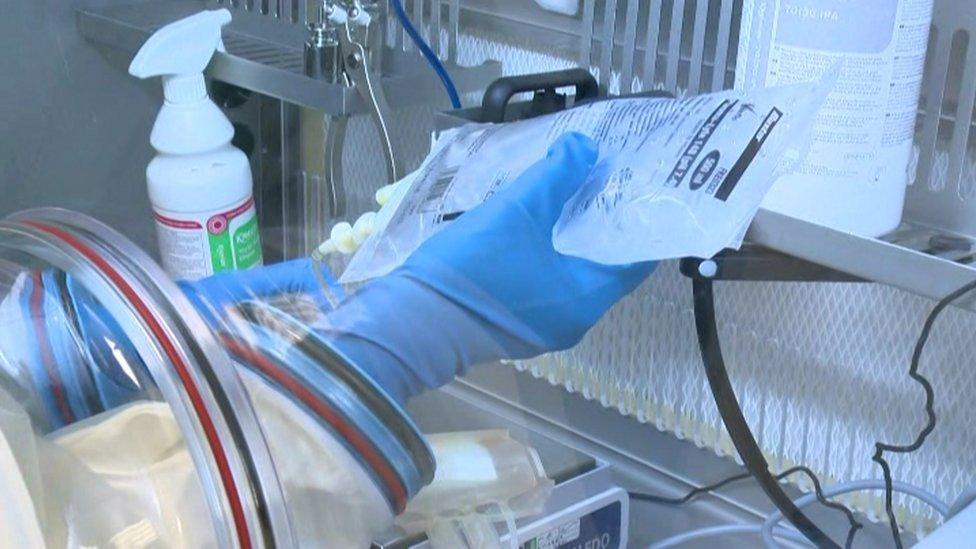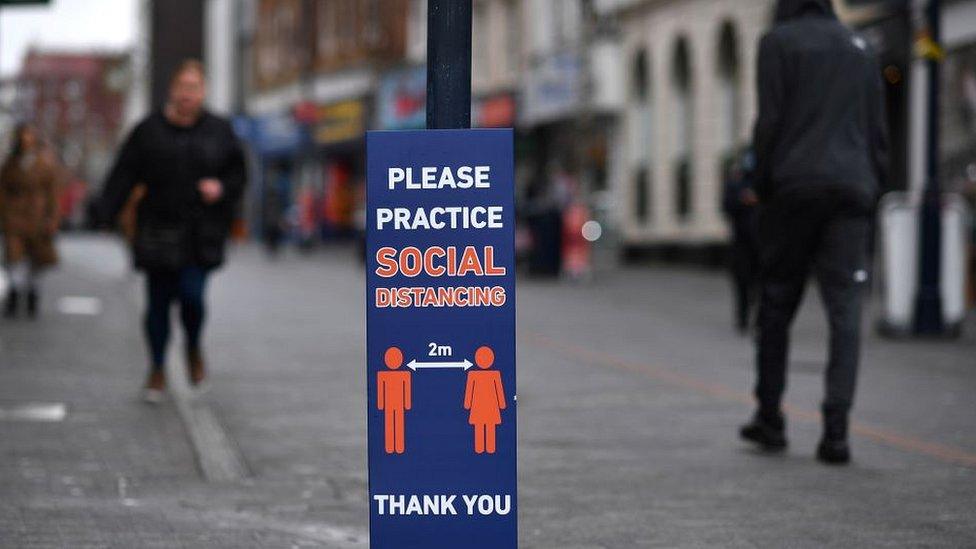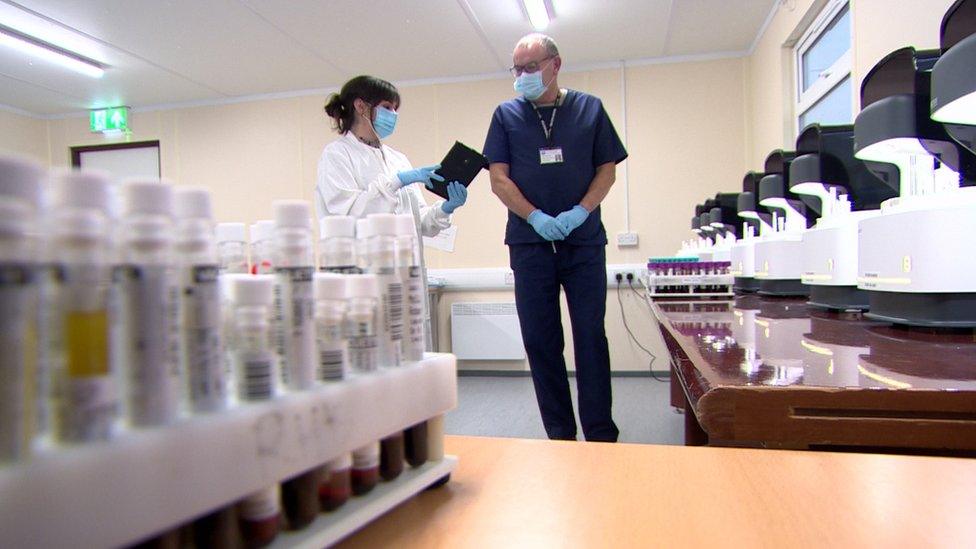Covid-19: Ulster University aims to answer antibody questions
- Published

It is one of the key questions in the battle against coronavirus - how are our bodies equipped to fight off the infection?
At Ulster University, a research team has been trying to find an answer by delving into a study of antibodies.
And the team has been helped by hundreds of people in Northern Ireland who are taking part in the research.
On Sunday, they will - one by one - take an antibody test in a bid to shed light on the issue of immunity.
The study at Ulster University's Jordanstown campus in County Antrim is being led by Prof Jim McLaughlin and Prof Tara Moore.
"We are delighted with the response of the Northern Ireland public and their willingness to help us with this research," said Prof Moore, a specialist in personalised medicine.
'Valuable for participants'
The researchers have sought a range of people to take part in the study.
Firstly, those who have had a positive coronavirus test between 26 December last year and 23 January.
People who are "fairly confident" they have never had Covid-19 or have had limited contact with other people have also been enlisted as well as those who have recently had a negative test for the virus.
Can you become immune to coronavirus?
Those taking part on Sunday will each be tested for the virus using a nasal swab and a finger-prick blood test will enable the scientists to check for antibodies.
A blood sample will also be taken for further testing.
"The presence of antibodies would indicate that an individual has previously been exposed to the virus that causes Covid-19," said Prof Moore.
"The blood samples we take will allow us to do a comparisons between finger-prick antibody levels and that of blood plasma and serum.
"It's valuable for the people who take part - they will know that day if they have antibodies."
'Longevity of antibodies'
Prof Moore is hoping her team can do another study, offering people an antibody test before their vaccine, after they are vaccinated and then a follow-up test to see how long the antibodies last.
"So far some of the [research] at Ulster University has shown that antibodies can last up to 10 months" she added.
"The longevity of antibodies was interesting and it didn't increase or decrease with age."
All students and staff at Ulster University are being offered regular rapid antigen tests on campus.
Antigen screening allows the team to detect coronavirus in people who have no symptoms and are not aware they are infected.
The process, Prof Moore said, is vital in reducing transmission and allowing society to return to normality.
- Published27 May 2020

- Published3 February 2021

- Published6 January 2021
